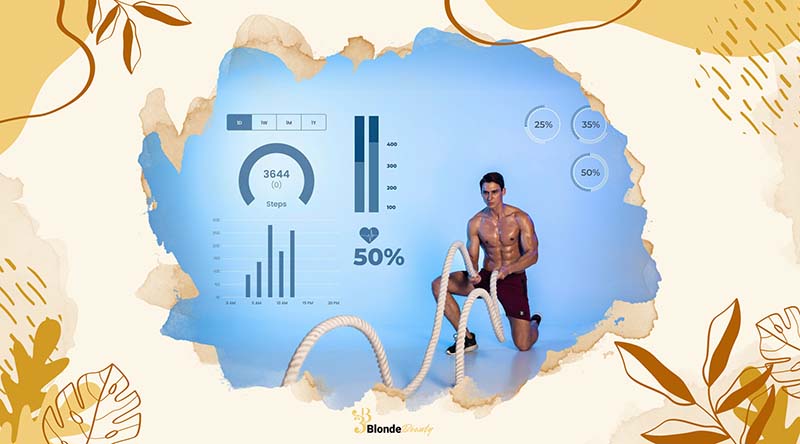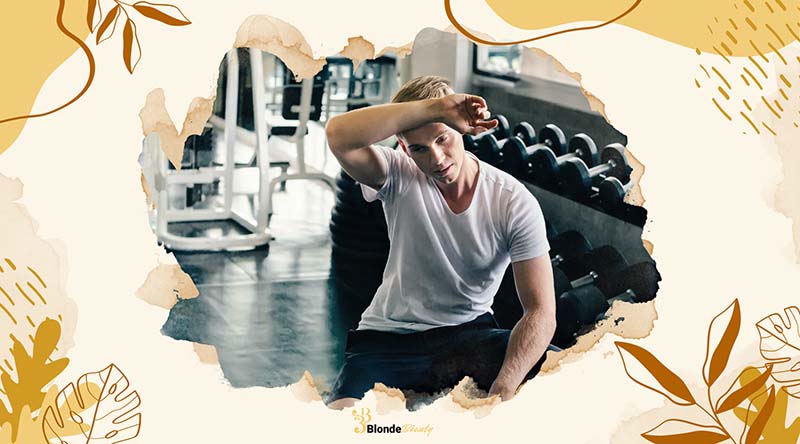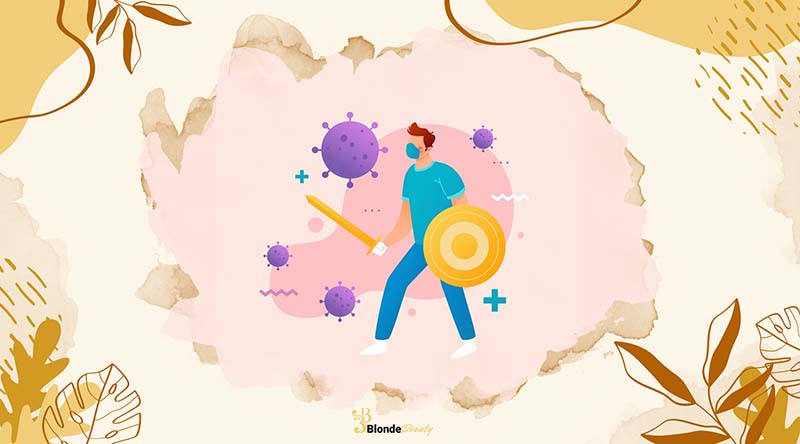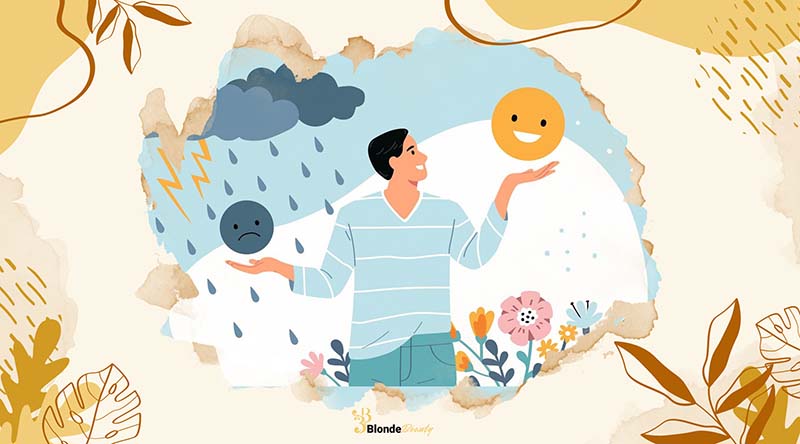Many people swear by the benefits of taking cold showers, claiming everything from faster recovery after intense workouts to fewer colds. But what does science say about these benefits?
In this piece, we’ll look at the evidence behind the common claims about cold showers and how they affect your body, including the intriguing question: “Do Cold Showers Increase Testosterone?
You should also read the following articles:
- Shilajit Dosage for Erectile Dysfunction: Benefits Guide
- Is Pineapple Good for Men’s Sperm? Key Insights
- Does Apple Cider Vinegar Help With Erectile Dysfunction?
Do Cold Showers Boost Testosterone?
You might assume that colder temperatures could boost testosterone production, especially in the scrotum area. However, any potential impact would be temporary. According to experts like Miller and urologist David Shusterman, both cold and hot showers have short-lived effects.
These effects wear off fairly quickly and are not likely to have a lasting impact on testosterone levels.
While some cultures believe in the rejuvenating properties of cold water immersion, it’s not considered an effective method for treating low testosterone levels. So, while cold showers may have other benefits, increasing testosterone levels isn’t one of them.

Scientific Explanation Between Cold Showers and Increased Testosterone
Understanding the connection between cold showers and testosterone involves grasping the role of temperature in testicular function.
The testicles, located in the scrotum outside the body, are crucial for testosterone production and sperm development. The idea behind the belief that cold showers might increase testosterone stems from the fact that maintaining an optimal temperature is vital for sperm production. However, despite this common assumption, scientific research is lacking in demonstrating a direct link between cold showers and boosted testosterone levels.
Early studies indicated that maintaining the right temperature is beneficial for DNA, RNA, and protein synthesis, crucial for optimum sperm production. Conversely, research on animals revealed that exposure to higher temperatures than required could lead to a decrease in sperm production due to testicular shrinkage induced by testosterone decline.
Further investigation into this matter includes a study on the effects of physical exercise and cold stimulation on testosterone levels. While physical exercise was found to stimulate testosterone production through the influence of Leutinizing Hormone (LH), cold water exposure resulted in a 10% decrease in testosterone levels.
Additionally, a 2013 study observed that sperm quality and concentration increased during colder external temperatures, contrasting with declines in warmer weather.
Notably, a 2017 clinical trial on sprint-trained athletes revealed a positive response to testosterone following single whole-body cryotherapy. This treatment involved exposing subjects to extreme cold temperatures shortly after sprint training, leading to a temporary increase in testosterone levels for 24 hours.
However, it’s important to note that this effect was attributed to extreme cold exposure rather than cold water, leaving the impact of cold showers on testosterone inconclusive.
Other Health Benefits of Cold Showers
While the connection between cold showers and testosterone production remains uncertain, there are several other health benefits associated with immersing oneself in cold water:
Improve Metabolism
Brown fat, also known as brown adipose tissue, is a type of fat found in humans. Research from 2007 and 2009 has shown that exposure to cold temperatures can activate brown fat.
This activation is linked to a healthy balance between brown and white fat, with higher levels of brown fat associated with a better body mass index (BMI) and overall health.
Fast Recovery After Exercise
Cold water immersion may aid in quicker recovery following intense workouts. A 2010 case report on athletes revealed reduced pain and tenderness after exercise, facilitating a faster return to athletic activities.
While some studies from 2007 and 2016 showed only slight benefits of cold water immersion on muscle soreness recovery, especially when combined with hot water exposure or prolonged immersion in temperatures ranging from 52 to 59°F (11 to 15°C), other research has found no significant benefit.

Improve Immune System
Exposure to cold water might have a modest effect on the immune system. Studies indicate that immersion in cold water triggers the release of adrenaline, leading to increased production of anti-inflammatory substances and a reduced inflammatory response to infections.
Additionally, research from 2016 demonstrated a 29% reduction in work absences due to illness among participants who took cold showers, suggesting potential immune-boosting effects.

Improve Mood
Cold showers have shown promise in alleviating symptoms of depression and anxiety. Some individuals report experiencing a mental boost from the shock of cold water, leading to improved mood.
This effect may be attributed to the body’s focus on responding to the cold stimulus rather than negative thoughts or stressors.

Instructions or Taking a Cold Shower Properly
Here’s how to take a cold shower properly to maximize the potential benefits while ensuring your body stays safe:
- Start Slow: Ease into it gradually. Don’t jump straight into ice-cold water. Instead, adjust the temperature throughout your shower or progressively decrease the temperature with each shower. Begin with warm water, then move to lukewarm, cool, and eventually cold water.
- Partial Exposure First: Before fully immersing yourself, acclimate your body to the cold by splashing cold water on your hands, feet, and face. This gradual exposure helps your body adjust to the temperature without the shock of sudden cold.
- Prepare for Warmth: Have a towel or a warm space ready for when you finish your cold shower. This ensures you can warm up immediately afterward, preventing prolonged shivering and discomfort.
- Consistency is Key: To experience the potential benefits, maintain a consistent routine. Take a cold shower at the same time every day so your body can adapt to the cold exposure over time. Remember, changes may not be immediate, so be patient and stick to your routine.
By following these steps, you can safely incorporate cold showers into your lifestyle and potentially reap their rewards without causing harm to your body.
Can Cold Shower Cause Erectile Dysfunction?
Cold showers are unlikely to cause Erectile Dysfunction (ED). In fact, there is evidence suggesting that cold exposure, like cold showers or ice baths, may have potential benefits for men’s sexual health, including improving blood flow, testosterone levels, and overall reproductive health.
Studies indicate that cold water therapy can increase testosterone levels, improve sexual health, and positively impact intimate relationships.
While there are various factors that can contribute to ED, cold showers are not a direct cause based on the available information.
Conclusion
In conclusion, addressing the question, “Do Cold Showers Increase Testosterone?” it’s important to note that cold showers offer a range of potential health benefits, from improved metabolism and faster recovery after exercise to enhanced immune function and mood.
However, the direct link between cold showers and increased testosterone production remains uncertain. Despite this, there’s evidence to suggest that cold exposure can positively impact men’s sexual health, potentially influencing testosterone levels.
Visit other Blondebeauty articles to gain more health knowledge.

Laureate Professor Clare Collins
Professor Clare Collins is a leading expert in nutrition and dietetics at the School of Health Sciences, part of the College of Health, Medicine and Wellbeing. Her work is changing the way we think about food and health. She grew up as one of nine children and was the first in her family to finish high school and go to college. This background gave her a strong work ethic and a deep appreciation for seizing opportunities.
As the Director of the Hunter Medical Research Institute’s Food and Nutrition Program and a recipient of three NHMRC Research Fellowships, Professor Collins is making a big difference in public health. She focuses on helping people who are often overlooked, using new technologies like apps and online programs to improve their nutrition and reduce the risk of chronic diseases.
Professor Collins is well-respected and has been recognized as a Fellow in four major health and science organizations. She leads a diverse team of experts, including dietitians, computer scientists, and engineers, working together on global health projects.
Her achievements are impressive. She has received over $29 million in research funding, published more than 450 papers, and helped 35 PhD and Master’s students complete their degrees. She’s also active in sharing her knowledge with the public. She has developed tools like the Australian Eating Survey and the Healthy Eating Quiz, and she often appears in the media to talk about nutrition.
PUBLISHED ARTICLES
- Collins, C. (2019). “The Effect of a Pilot Dietary Intervention on Pain Outcomes in Patients Attending a Tertiary Pain Service.”
- Collins, C. (2022). “Variation in cardiovascular disease risk factors among older adults.”
- Collins, C. (2022). “Evaluation of an online intervention for improving stroke survivors’ health-related quality of life: A randomised controlled trial.”
These articles show Professor Collins’s commitment to understanding how better nutrition can improve health. Her work is important for researchers, doctors, and anyone interested in healthy living.
